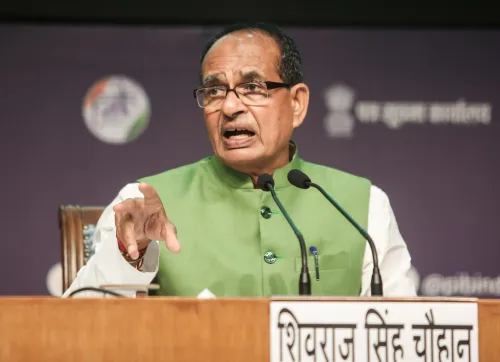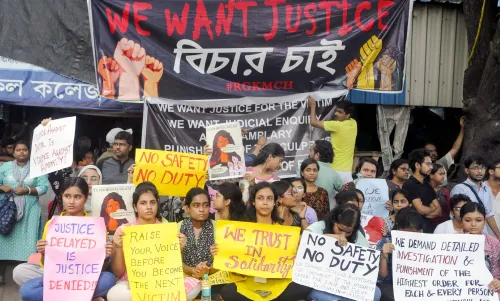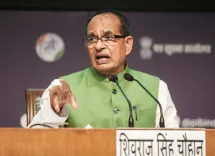Why is the TN BJP Defending the 130th Amendment Bill Against Opposition?

Synopsis
Key Takeaways
- The 130th Amendment Bill aims to enhance integrity in governance.
- It prohibits convicted politicians from holding office.
- The BJP claims the bill supports a corruption-free future.
- Opposition parties are accused of shielding corrupt leaders.
- This initiative reflects the people's will for accountability.
Chennai, Aug 21 (NationPress) The Tamil Nadu chapter of the Bharatiya Janata Party (BJP) on Thursday staunchly endorsed the Constitutional (130th) Amendment Bill, branding it a "Brahmastra" for ensuring corruption-free governance and a pivotal move towards achieving a 'Viksit Bharat' by 2047.
BJP spokesperson A.N.S. Prasad emphasized that this bill, introduced under the guidance of Prime Minister Narendra Modi and Union Home Minister Amit Shah, is inspired by Dr. B.R. Ambedkar's Constitution and aims to bar convicted politicians from holding office if sentenced to imprisonment for over 30 days.
"This is a groundbreaking initiative to promote justice, accountability, and integrity in public service," he stated.
Prasad took aim at Tamil Nadu Chief Minister M.K. Stalin, Congress leader Rahul Gandhi, and their INDIA bloc allies for their opposition to the bill, accusing them of attempting to shield corrupt figures.
"Rather than undermining democracy, this legislation fortifies it by ensuring that only leaders of unimpeachable integrity can assume office," he continued.
Pointing to the DMK's management of former minister V. Senthil Balaji's money laundering case, the BJP spokesperson argued that the ruling party's efforts to retain him following his arrest revealed its "moral bankruptcy".
He mentioned that the Supreme Court had itself chided the DMK for stalling the legal proceedings.
The statement further accused the Congress and its allies of hypocrisy, referencing the "misuse" of Article 356 during the UPA era to dismiss state administrations and the controversial ordinance in 2013 designed to protect convicted lawmakers after the Supreme Court nullified Section 8(4) of the Representation of the People Act.
The opposition coalition's "legacy - from the 2G spectrum scandal to TASMAC dealings in Tamil Nadu, and Arvind Kejriwal's extended tenure despite corruption allegations - illustrates their deep-seated commitment to shielding corrupt leaders," Prasad asserted.
The BJP contended that the 130th Amendment reflects the public's will, promising a future where governance is devoid of crime and corruption.
"With PM Modi and HM Shah at the helm, India is progressing towards prosperity founded on integrity. This bill is a guiding light of hope and justice, and those who oppose it are turning their backs on the very essence of the Constitution," Prasad urged, calling for opposition parties to transcend partisan interests and endorse the initiative.









